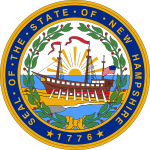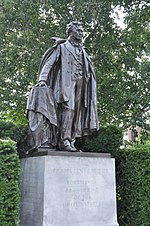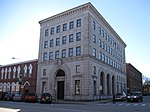Everett Arena
Buildings and structures in Concord, New HampshireIndoor arenas in New HampshireIndoor ice hockey venues in the United StatesModernist architecture in New HampshireSports in Concord, New Hampshire ... and 1 more
Sports venues in New Hampshire

The Douglas N. Everett Arena is an indoor arena in Concord, New Hampshire, United States. It hosted the Northeastern Hockey League's New Hampshire Freedoms in 1979. The arena holds 1,341 people for hockey. The arena is owned by the City of Concord and operated by the city's General Services Department. The arena was built in 1965 to designs by Manchester architects Koehler & Isaak. Operations were taken over by the City in the mid 1980s. From mid-September to mid-March the arena holds ice skating activities such as public skating, stick practice, and hockey games. From mid-March to mid-September the arena hosts shows and events. Roller skating is offered June-July.
Excerpt from the Wikipedia article Everett Arena (License: CC BY-SA 3.0, Authors, Images).Everett Arena
Loudon Road, Concord
Geographical coordinates (GPS) Address External links Nearby Places Show on map
Geographical coordinates (GPS)
| Latitude | Longitude |
|---|---|
| N 43.209444444444 ° | E -71.526944444444 ° |
Address
Everett Arena
Loudon Road
03301 Concord
New Hampshire, United States
Open on Google Maps









